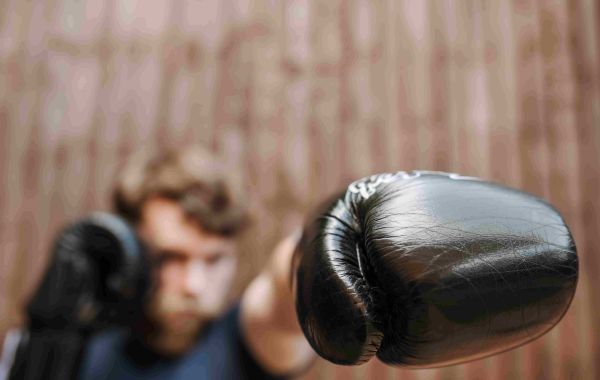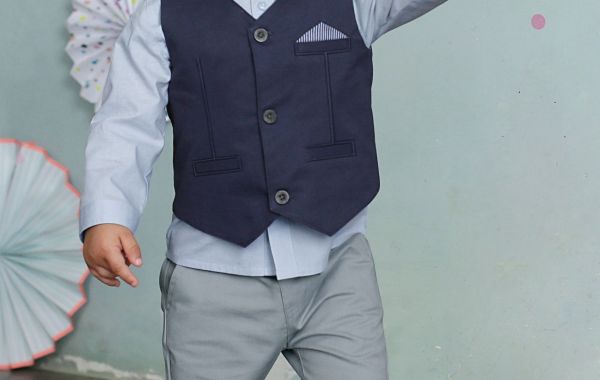Hands are the most significant combat tool for boxers. Therefore, boxing gloves are among their most important items of protective equipment. In boxing, numerous distinct styles of boxing gloves are designed for different training and martial arts disciplines.
Choosing the right pair of gloves from the available types is important because they are a fighter's first line of defense against hand injuries. Consider these four key elements when investigating various boxing glove types.
- Material: The gloves' construction material and durability.
- Padding: The protective padding's thickness and placement
- Intended use: What the gloves are intended for is their intended use.
- The proper weight for the intended use.
Now that you know what factors you need to consider while purchasing a certain type of gloves, it's time to explore the type of gloves that best suits your needs.
- Training gloves
A good pair of training gloves can be used for both heavy bag work and partner-based training. They have strong foam padding for shock absorption, and the closing is either a tight lace-up or a Velcro wrap around the wrist for excellent support. Premium training gloves often use leather for durability. However, neoprene is also an option. Training gloves are arguably the most crucial gloves a boxer can have to safeguard the knuckles, hands, and wrists during strenuous training. The main factors are:
- Thick foam padding over knuckles
- Stiff wrist support with Velcro or lace-up closure
- Good for partner and bag training
- Protects hands, wrists, and knuckles
- Commonly made of leather
- Bag gloves
Nothing beats a pair of bag gloves when perfecting your technique on a heavy bag. Boxers get greater feedback in their hands and arms with every punch since the padding is thin and the wrists are not supported. Instead of leather, neoprene is typically used to make them. Although the lack of padding aids in honing one's technique, it also leaves one vulnerable to injury. Therefore, a heavier and more adaptable training glove is suggested for new boxers or any fighter who wants to go all out on the heavy bag. Key points:
- Usually made of neoprene.
- Minimal support
- Thin padding
- Good for light bag work focusing on techniques
- Not much protection as training gloves
- Sparring gloves
Sparring gloves are specially constructed to prevent injuries. Boxing sparring gloves are larger and more padded than training or bag gloves. To avoid injury, make sure you and your sparring partner use gloves weighing at least 16 ounces. That's why buying a pair of sparring gloves is a must for many boxers. Sparring gloves are supposed to be heavier than regular training gloves, so if your first pair weighs less than 16 ounces, you should look into purchasing a second pair. Key points are:
- Softer padding for lower impact
- The heavier weight of at least 16 ounces
- Good for sparring with partners
- Competition gloves
Boxing gloves are strictly regulated as part of the rules for competitive bouts. Depending on the weight category and the specifics of the sport, the rules for competition gloves are further classified as amateur or professional. If you wish to fight professionally, you must buy a set of competition gloves that adhere to these rules.
Competition gloves are comparable to high-quality training gloves, except that they include firmer padding to deliver a more substantial blow to the opponent. Furthermore, a lace-up closure is preferred over a hook-and-loop one in competitive boxing gloves to prevent the closure from snagging on anything during a bout. Key points are:
- Stiffer padding like training gloves
- Lace-up closure
- Closely regulated according to competitive boxing
- Mexican gloves
Boxing gloves in the Mexican style are essentially a sleeker take on the traditional training or competition glove. These were extremely popular when standard boxing gloves were still cumbersome. Many fighters use them even now.
The thin padding and custom shape of Mexican-style boxing gloves set them apart from other styles. Famous brands use ancient materials like horsehair to make stronger cushions and better equipped to absorb blows. Key points are:
- Subcategory of competitive gloves but more snug fit and more compact design
- Big brands make them from materials such as horsehair
- Muay Thai gloves
Muay Thai is sometimes misunderstood because of its similarities to kickboxing, but it is actually a very different martial art. The sport uses an outstanding eight-point hitting system, with punches, kicks, elbows, and knees all in play. While the Muay Thai glove may look like a standard boxing glove, some key changes exist.
To succeed in Muay Thai, a fighter must be able to fend off attacks from any direction, as there are more opportunities for them to do so. To protect the hands from being struck during defensive maneuvers, Muay Thai gloves have padding on the top and the sides. The grip is probably the most notable difference between boxing gloves and Muay Thai gloves. Grabbing and clinching is not only tolerated but encouraged in Muay Thai, and the gloves allow for greater agility in these situations.
- Similar to training boxing gloves
- Flexible palm area for grip
- More padding on the sides
- MMA gloves
Because of the wide variety of fighting methods used in MMA, gloves are made to accommodate multiple fighting grips. Muay Thai gloves provide minimal protection to the knuckles and back of the hand while leaving the fingers unprotected. Most boxers won't need MMA gloves unless they intend to practice boxing and MMA both.
Keep in mind that in addition to using protective gloves, all boxers should also be familiar with the proper use of hand wraps. A good pair of training gloves is a must-have for any boxer, even if they don't plan on ever competing.
- Look like weightlifting gloves.
- Thin padding at the back of the hand and over the knuckles
- Flexible palm area for grip
- Open-finger design for grabbing
Last words:
Take a look at the adaptability of StarPro Combat boxing gloves if you're on the market for a new pair. Then, get the most out of your money by learning how to maintain your wraps and gloves properly.








